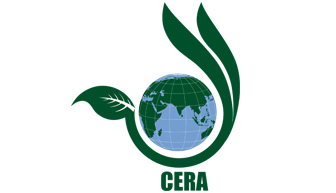Partners in Conservation

The idea for setting up CERA was mooted by a group of environmentalists and conservationists who were concerned about the rapidly.

Dr S.R.Yadav(W. Ghats Plant Expert Group), Dr D. Narasimhan & Dr A. Madhusudhana Reddy(E Ghats Plant Expert Group), Dr K. Haridasan.
Activities
Biodiversity conservation:
Biodiversity has received much attention in environmental research and public policy in recent years. There is a world-wide interest in its relevance for the carrying capacity of rich but fragile ecosystems. There is also a need to address the ecological and economic issues for developing a wide array of policy options. There is further need to pay attention to various economic evaluation approaches for furthering biodiversity conservation along with sustainable development. Towards this end, CERA plans to use ecological and value indicators in integrated economic-ecological modeling and analysis. Further, to assess the status of threatened species and habitats, including sensitive ecosystems, CERA plans to undertake field evaluation studies using technology options such as GIS for interpreting field data.
Medicinal plants conservation:
A pilot study has been initiated by CERA to assess the medicinal plants under ex situ conservation. The pilot study would make a quantitative assessment of medicinal plants available in off-site conservation sites, the agro-techniques being developed and the opportunities for large scale propagation using these technologies to meet the market demand and, thereby, reduce pressure on wild/natural populations.
City forests from wild seeds:
CERA plans to take a lead in development of small seed bank modules as part of its plant conservation programme for development of urban forests. The plan includes collection of seeds of indigenous plant species for use in greening open spaces in urban areas towards long-term conservation of important native germplasm. This programme is of high educational value for the urban populace. (The modalities of this programme are being worked out with botanic gardens/arboreta that form part of our network partnership).
Forestry
Forests not only provide habitat to about two-third of all the species available on earth but also ensure environmental functions such as biodiversity, water and soil conservation as well as climate regulations. CERA, with its team of researchers working on the sustainable forest resource assessment and management, is well placed for providing sustainable solutions to the problems faced by today's growing business needs with special reference to livelihood security of local population/indigenous people. CERA plans to support other organisations, both in government and private sector, in assessing environmental policies and developing sustainability strategies.
Waste land development:
It is well known that land is central to all primary production systems. Over the years, the large portions of the geographic area has suffered from different types of degradations owing to various anthropogenic factors. The bludgeoning population is further places an enormous demand on land resources. These pressures have led to drastic changes in the proportion of land utilised for agricultural activities, urbanisation and industrial development. Some of the most degraded lands in the country are the common property resources (CPRs). These resources include community pastures, community forests, wastelands and common dumping and threshing grounds. CERA intends to evaluate the quantum of resources of resources being lost and assist in development of programmes for mitigating the loss.
Environmental education:
The importance of environmental education cannot be gainsaid in the present day scenario; needless to say, awareness building promotes change in attitudes and value systems that influence environmentally ethical behaviour and subsequently help in development of an ecologically sustainable society. Considering that environmental education is basic to the achievement of the goal of sustainable development CERA hopes to invest it time and expertise in development of educational modules for promoting biodiversity conservation and sustainable development.


